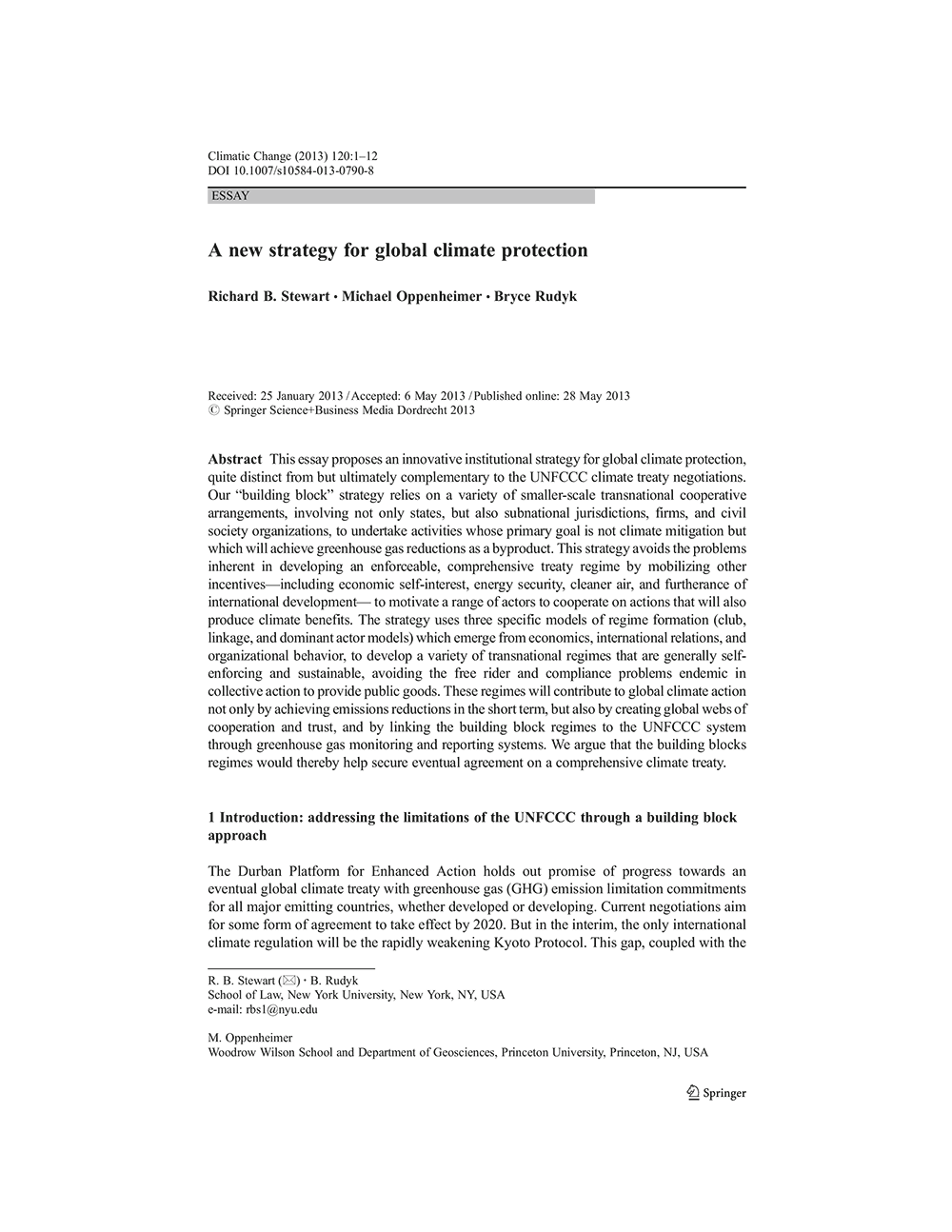This essay proposes an innovative institutional strategy for global climate protection, quite distinct from but ultimately complementary to the UNFCCC climate treaty negotiations. Our “building block” strategy relies on a variety of smaller-scale transnational cooperative arrangements, involving not only states, but also sub-national jurisdictions, firms, and civil society organizations, to undertake activities whose primary goal is not climate mitigation but which will achieve greenhouse gas reductions as a byproduct. This strategy avoids the problems inherent in developing an enforceable, comprehensive treaty regime by mobilizing other incentives—including economic self-interest, energy security, cleaner air, and furtherance of international development—to motivate a range of actors to cooperate on actions that will also produce climate benefits.
The strategy uses three specific models of regime formation (club, linkage, and dominant actor models) which emerge from economics, international relations, and organizational behavior, to develop a variety of transnational regimes that are generally self-enforcing and sustainable, avoiding the free rider and compliance problems endemic in collective action to provide public goods. These regimes will contribute to global climate action not only by achieving emissions reductions in the short term, but also by creating global webs of cooperation and trust, and by linking the building block regimes to the UNFCCC system through greenhouse gas monitoring and reporting systems. We argue that the building blocks regimes would thereby help secure eventual agreement on a comprehensive climate treaty.

